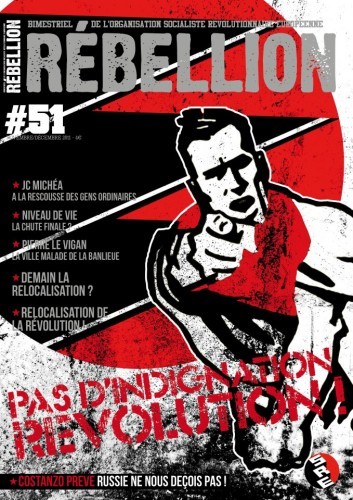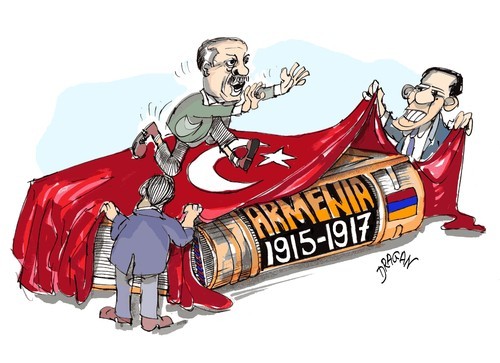The Once-Weres and the Could-Have-Beens of Europe
by Derek Turner
Ex: http://www.alternativeright.com/
Vanished Kingdoms—The History of Half-forgotten Europe
Norman Davies. London: Allen Lane, 2011. 800 pp, £30 hb
 When I visited the Naval Museum in Madrid several years ago, I took away as a souvenir a facsimile of a coloured 1756 naval manual illustration entitled Banderas que las naciones arbolan en la mar. It shows ninety different flags that might conceivably be met with upon the high seas by Spanish sailors—ranging from the personal standard of the Hapsburgs and the banner of the Papal States to the presumably more frequently encountered flags of Brabant, Corsica, the English East India Company, Flanders, Pomerania, Riga, Stettin, Zeeland and many other names now relegated to history’s footnotes.
When I visited the Naval Museum in Madrid several years ago, I took away as a souvenir a facsimile of a coloured 1756 naval manual illustration entitled Banderas que las naciones arbolan en la mar. It shows ninety different flags that might conceivably be met with upon the high seas by Spanish sailors—ranging from the personal standard of the Hapsburgs and the banner of the Papal States to the presumably more frequently encountered flags of Brabant, Corsica, the English East India Company, Flanders, Pomerania, Riga, Stettin, Zeeland and many other names now relegated to history’s footnotes.
Almost none of these once brinily-billowing banderas would now be encountered on any seas by anyone. The illustration is a piquant evocation of a looser and more colourful Europe—a hint of all that has faded into dull desuetude in the two-and-a-half centuries since. But it is also a salutary reminder of the complex counter-narratives that underlie accepted realities, and seethe beneath the veneer of the nations we think we know.
My maritime metaphor echoes Norman Davies’s introduction to Vanished Kingdoms:
This book . . . garners the traces of ships of states that have sunk, and it invites the reader, if only on the page, to watch with delight as the stricken galleons straighten their fallen masts, draw up their anchors, fill their sails and reset their course across the ocean swell.
Sometimes the most compelling history is the kind that falls between the cracks of the chronicles and subverts fondly-held foundational myths. The ‘official’ history of Europe is variegated enough to give any number of historians lifetimes of employment, but now the 72 year old Slavonic specialist Davies has produced fifteen case studies dating from the fifth to the twentieth centuries to suggest that a great deal of what we take for granted about Europe’s past is “narrative colonization” which ought to be unlearned. He ends with a short chapter, “How states die”, which seeks to formulate “a typology of vanished kingdoms”.
This all makes for an engrossing, evocative and original contribution to European historiography. There will be few who will not unearth some new insight to challenge conventional, convenient versions of events—the flattering histories which Napoleon famously dismissed as “a fable agreed upon”. The “Europe of a hundred flags” wished for by the Breton nationalist Yann Fouéré is more like a Europe of a thousand flags. “The past is not only a foreign country that we half-knew existed” Davies observes—“it is hiding another concealed country behind it, and behind that one, another, and another, like a set of Russian dolls”.
Davies is a melancholic and romantic, and his intellectual interests have been influenced by his Welshness, chapel-going and early encounters with Heraclitus and Gibbon. He also possesses a Polonism so pronounced that he has (unjustly) been accused of understating historical Polish anti-Semitism and downplaying Jewish suffering during World War Two. This may have cost him a tenured position at Stanford in 1986, something he clearly still broods upon, despite claiming on his (typo-full) website that
. . . he remembers the episode stoically—as evidence of academic small-mindedness and of [the] fate awaiting anyone who confronts entrenched opinions and prejudices.
It cannot have helped that he is strongly anti-communist. His website entry on his 2006 book Europe at War explains his view that communism was the moral equivalent of nazism:
[T]he war in Europe was dominated by two evil monsters, not by one . . . The liberators of Auschwitz were servants of a regime that ran still larger concentration camps than those they liberated . . . The outcome of the [war] was at best ambiguous. The victory of the West was only partial, its moral reputation was severely tarnished and, for the greater part of the continent of Europe, ‘liberation’ was only the beginning of more than fifty years of further totalitarian oppression.
The most recent of his shipwrecks of history is the Soviet Union itself. There were many factors responsible for the USSR’s dissolution, but the problems were fundamental:
[T]he Soviet system was based on extreme force and extreme fraud. Practically everything that Lenin and the Leninists did was accompanied by killing; practically everything they said was based on half-baked theories, a total lack of integrity and bare-faced lies.
He maintains that Gorbachev was probably taken by surprise by the events he expedited—and observes that glasnost, which was invariably rendered in the Western press as “openness”, actually means “publicity”. The subsequent inglorious events traumatized all Russians, and even now feed nationalistic dislike of the oligarchs and the Balt, Turkic, and Chechen separatists of Russia’s near abroad—and of course America. Putin’s rhetoric about the alleged glories of the USSR is coloured by “a strong sense of bafflement” and “pangs of corporate guilt” that he and other insiders did not forestall this degrading dissolution.
Davies leads the Western reader surefootedly across the little-known landscape of the eastern continent, making sense of entangled narratives and being fair to all. He commences each chapter with descriptions of these places as they look now, from their topography to the chief historical sites, before haling us back across the centuries with tales of ancient alarums, excursions, raiders, crusaders, forgotten wars, futile resistances, burned villages, slighted cities, and mounted tribes moving restlessly forever across that exhilarating vague vastness between Teutonia and Tartary, Europe and Asia. This area which has too few defensible frontiers for its own good has seen the most atrocious crimes, mountains upon mountains of skulls heaped up by successive tsunamis of Tartars, Mongols, Cossacks, Teutonic Knights, Communists, and Nazis powered by greed, ideology, religion, race-hatred, or sheer love of killing.
Other essays with an east European theme include one on Litva, the Polish-Lithuanian “Grand Duchy with Kings”, at one time the largest of all European states covering much of what is presently Lithuania, Belarus, Ukraine and Poland, and that lasted more than five centuries. We are taken through Litva’s crepuscular chronicles from the time Viking (locally called Varangian) explorers started to hazard the region’s headwaters, pushing ever further inland through a primevally-forested country populated by wisent, konik, elk, and lynx, some of which still persist in a precious fragment of this forest along the Polish-Belarussian border. The Varangians conquered existing Slav settlements like Kiev or established new fortress-fords at places like Novgorod, and traded or fought all the way down to the Black Sea and eventually Byzantium, where for five centuries the Emperors of the East maintained an Anglo-Scandinavian Varangian Guard as both elite fighting regiment and personal corps. Semi-legendary kings ruled over a huge, indeterminate territory—Ukraina means “On the Edge” in Slavonic, and these wild steppes needed to be protected by self-defence communities of Kozaks (a Turkic word meaning adventurer or freebooter) because they were so prone to incursions. Although Orthodoxy made rapid advances from the 9th century onwards, the ruling caste long remained pagan; Grand Duke Gedminas legendarily founded Vilnius after dreaming of an iron wolf howling from a hill overlooking three rivers, and when he died in 1342 his obsequies were entirely pagan, his body being incinerated along with his favourite servant, favourite horse and a group of German slaves. But they cleverly allied with Catholic or Orthodox dynasties according to the political winds, and this pragmatism, as well as Litva’s relative remoteness, helps to account for the Duchy’s durability. In 1386, Prince Jogaila was elected king by an assembly of barons on condition of accepting Christian baptism and permanent union with Poland, and for almost 200 years afterwards “Jagiellonians” steered their ship as a joint Polish-Lithuanian venture, now intermarried with the Angevin and Hapsburg European mainstream. Even after the Jagiellonians had gone, the Duchy was often fortunate in its statesmen, but by the early 17th century it was trapped between Muscovy pushing from east and south and Sweden from north and west, and the king-grand duke was forced to flee into exile. There was time for one last great figure, in the shape of King John III Sobieski, whose hussars broke the Turks outside Vienna in 1683, but by then the Duchy was riven by internal disputes and weak leadership. The Great Northern War of 1700-21 between Russia and Sweden took place largely on the Duchy’s territory, and from then on it became the plaything of Russia, Prussia and Austria—the “international bandits” as Davies calls them, who carved it up between them while Voltaire and other “wisecrackers of the Enlightenment” chortled. There were last desperate attempts to assert independence and expel foreign troops, notably in 1794 in Warsaw. Russian forces under the leadership of Suvorov massacred the population of the Warsaw suburb of Praga, and the General sent a message to Catherine the Great reading simply “Hurrah. Praga. Suvorov”—to which she answered, equally laconically, “Bravo Fieldmarshal. Catherine”. On 25 November 1795, the last of the offices of state ceased functioning and the last king-grand duke, Stanlislaw-August, abdicated, after which he was exiled to captivity in St. Petersburg. This sad ending has been reprised severally since thanks to the area’s unlucky proximity to Germany and Russia. Time after time, even more than other areas of Europe, this unhappy region has witnessed what Zbigniew Herbert would call “the abrupt change of life / Into archaeology”. Even now, the former provinces of Litva—now Poland, Belarus and Lithuania—all claim to be the legitimate heirs of the legacy, even arguing over Adam Mickiewicz, whose 1834 epic poem Pan Tadeusz commences:
O Litva, My homeland, you are like health /
How to gauge your worth, only he can know /
Who has lost you. Today I see your full beauty /
And describe it, because I long for you.
Another equally engrossing east European-themed essay is “Borussia: Watery Land of the Prusai”, where we are introduced to previously unknown tribes emanating from what would one day become East Prussia, fleetingly recalled from the Mazovian memory-hole before sinking back into their immemorial lagoons, making us wish we knew them better—Varmians, Pomesgasanians, Natangians, Sambians, Skalovians, Nadruvians, Bartians, Sudovians, and Gallinians. We hear of the Wars of the Schmalkaldic League and the fate of the alchemist Conte de Ruggiero, hanged in a gilded gallows, wearing a toga made of gilt paper—and are tantalized by the possible fate of Konigsberg’s/Kaliningrad’s fabled Bernsteinzimmer (“Amber Room”), fifty-five gol and crystal-decorated amber panels weighing a total of six tons presented to Peter the Great, missing since 1944, according to assorted legends languishing in a Saxon mine, in a sunken German battleship, concealed in Moscow or concreted into the foundations of Soviet-era buildings. (German donations helped to pay for a new Amber Room opened in 2003 in St. Petersburg’s Catherine Palace.)
Then there is “Rusyn—The Republic of One Day”. That serio-comic “One Day” started at 5am on 15 March 1939 when the Wehrmacht rolled into the rump of Czechoslovakia and the Slovaks declared independence. The Ruthenian “Czechoslovaks” of Carpatho-Ukraine decided they might as well emulate the Slovaks, and by 6.30 pm they had declared a democratic republic, announced that the official language was Ukrainian, hoisted a flag of two horizontal blue and yellow bands and announced a touchingly vainglorious anthem, Shche ne vmerla Ukraina (“Ukraine has not yet perished”):
Ukraine has not yet perished, nor her glory, nor her freedom,
Upon us, fellow Ukrainians, fate shall smile once more.
Our enemies will vanish like dew in the sun,
And we too shall rule, brothers, in a free land of our own.
But the following morning, Hungarian troops had crossed the border and annexed the little country. Rusyn paramilitaries fought on for a few days in the mountains, with hundreds executed after capture, but geopolitics told against them. In 1944, the Hungarians were briefly replaced by the Germans before the Red Army swept through and incorporated Carpatho-Ukraine into the Ukrainian SSR, repressing its distinct culture (ironically, today’s Rusyn autonomy movement is sometimes said to be financed by Moscow).
Davies’ forays into western and southern Europe are equally diverting. We start with the myth-encrusted Visigoths of Tolosa (Toulouse), and are introduced to the minutely described 5th century King Theodoric II, whose knees were “the comeliest and least wrinkled in the world”, who “prays with assiduity…but one suspects more habit than conviction” and was married to Queen Pedauco (“Goose-foot”—whose knees were presumably more wrinkled than her spouse’s).
We go to Spain before Spain ever existed, to pay our historical respects to the now-subsumed Aragonese, led by aristocrats like “Wilfred the Hairy” who defied fellow “valley viscounts” and the Moors from fortified hilltops.
We follow the meteoric career of Burgundy’s Charles the Bold, from the 1466 “high” of murdering all the inhabitants of Dinant to his 1477 downfall in what is now Switzerland, his naked corpse “frozen into the ice of a pond . . . split to the chin by a Swiss halberd, the body many times pierced by Swiss pikes”.
In the chapter on Sabaudia (Savoy), we are told of the time when the present Savoyard (and therefore Italian) royal claimant Vittorio Emanuele endeared himself to his virtual subjects by fatally shooting a man after shouting at him Voi, italiani di merda (“you Italian shits”).
In the discussion of Napoleon’s client state of Etruria, it is gratifying to renew acquaintance with Talleyrand’s citric aperçu on the judicial murder of the Duc d’Enghien, last of the French Bourbons—C’était pire qu’un crime; c’était une faute (“It was worse than a crime; it was a mistake”).
We are taken to Rosenau in southern Germany, to be regaled with just a few of the multiple ironies of Anglo-German history; during World War I the Britain ruled by descendants of Albert of Saxe-Coburg-Gotha underwent night bombing raids from giant Gothas planes named in honour of the selfsame dynasty. Like a pawkily proud Welshman, Davies takes mischievous pride in underscoring just how German is the “British” royal family, infinitely more closely related to the un-Home Counties-sounding Anhalt-Zerbsts or Pfalz-Zimmerns than to William the Conqueror, Henry VIII or even the Stuarts.
Still on a Cymric theme, there are anecdotes of Sinn Féin’s negotiator Eamon de Valera being humiliated by the British PM David Lloyd-George speaking to his secretary in Welsh more fluent than de Valera’s Irish—and a revisionist view of the history of Alt Clud, the “Kingdom of the Rock” in what is now south-eastern Scotland, which was rather much more Welsh than it was Scottish. Closest to home of all are his reflections on the future of the UK, which he suspects is destined to fail as all other states eventually fail—and probably soon.
There are criticisms that could be made of Vanished Kingdoms. Davies arguably makes too much of the Aragonese selling as slaves the Moorish population of Menorca in 1287, which he calls “a milestone in the grim history of European slavery”. But while this was clearly not an edifying event, it was merely one example of a trade that had always existed, and in which the Moors joined with at least equal enthusiasm (the luckless Menorcans were themselves sold in North Africa’s slave markets, which operated until the 19th century).
A few assertions seem over-confident, such as that Moors remained numerically predominant in much of Spain even after the Reconquista—but how can he, or anyone, know this for certain? The concluding chapter on “Why states die” feels curiously cursory after the richness and subtlety of the bulk of the book, just eleven occasionally banal pages that skim far too quickly over the musings of St. Augustine, Hobbes, Rousseau, and more recent theorists of state death. He cites “implosion, conquest, merger, liquidation and ‘infant mortality’” as causes of collapse, but scants over some other threats, such as the gradual loss of a previously unifying culture or population replacement through immigration (for example, a recent Scottish survey suggests that one fifth of Scotland’s population does not regard itself as “Scottish”, which has implications for Scottish independence). There are some small typos and inconsistencies, but it is only fair to note that I worked from an uncorrected proof copy and doubtless most of these were later edited out.
Yet this highly original book is about editing in rather than editing out, and the effect is eminently addictive—revivifying Europe’s unquiet dead to walk and talk again for a time, salvaging their sunken vessels and sending them scudding briefly again across history’s charts, while we their inheritors plot our future course across a sea of troubles.
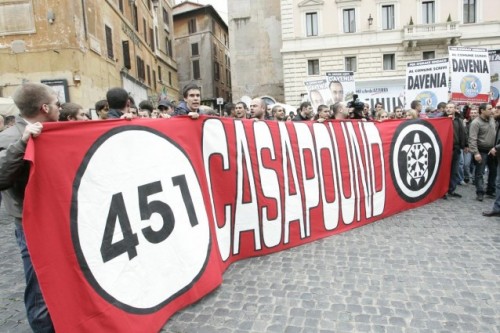





 del.icio.us
del.icio.us
 Digg
Digg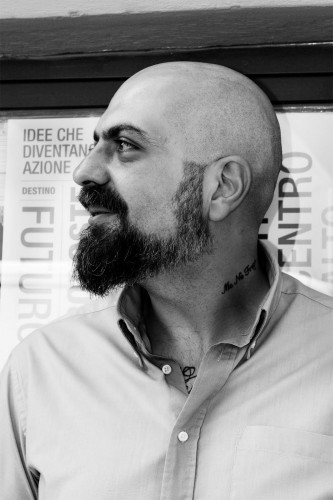
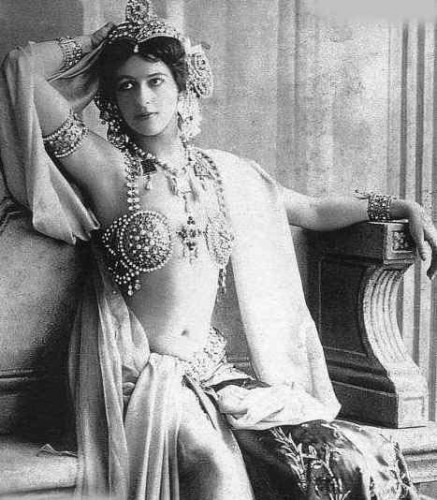





 When I visited the Naval Museum in Madrid several years ago, I took away as a souvenir a facsimile of a coloured 1756 naval manual illustration entitled Banderas que las naciones arbolan en la mar. It shows ninety different flags that might conceivably be met with upon the high seas by Spanish sailors—ranging from the personal standard of the Hapsburgs and the banner of the Papal States to the presumably more frequently encountered flags of Brabant, Corsica, the English East India Company, Flanders, Pomerania, Riga, Stettin, Zeeland and many other names now relegated to history’s footnotes.
When I visited the Naval Museum in Madrid several years ago, I took away as a souvenir a facsimile of a coloured 1756 naval manual illustration entitled Banderas que las naciones arbolan en la mar. It shows ninety different flags that might conceivably be met with upon the high seas by Spanish sailors—ranging from the personal standard of the Hapsburgs and the banner of the Papal States to the presumably more frequently encountered flags of Brabant, Corsica, the English East India Company, Flanders, Pomerania, Riga, Stettin, Zeeland and many other names now relegated to history’s footnotes.


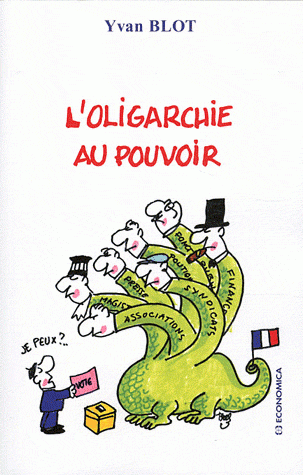


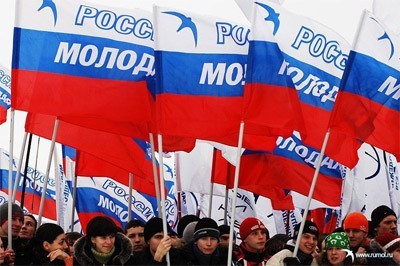
 In Ancient Athens, debtors who were unable to pay their creditors lost their land and were reduced to serfs who had to give their landlords one sixth of their produce in perpetuity. If the debt exceeded the debtor’s total assets, he and his family were reduced to slavery. A debtor could also become a slave by pledging his personal freedom for his debts.
In Ancient Athens, debtors who were unable to pay their creditors lost their land and were reduced to serfs who had to give their landlords one sixth of their produce in perpetuity. If the debt exceeded the debtor’s total assets, he and his family were reduced to slavery. A debtor could also become a slave by pledging his personal freedom for his debts.
